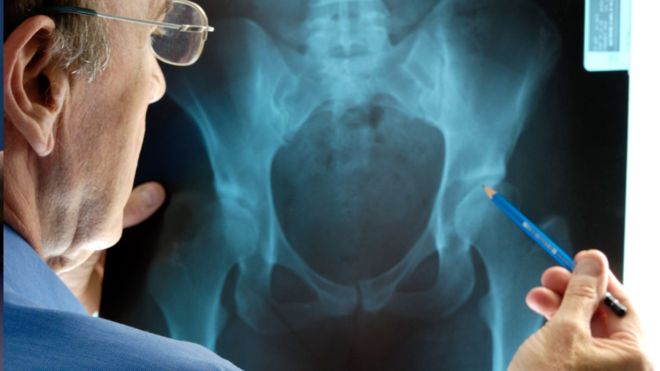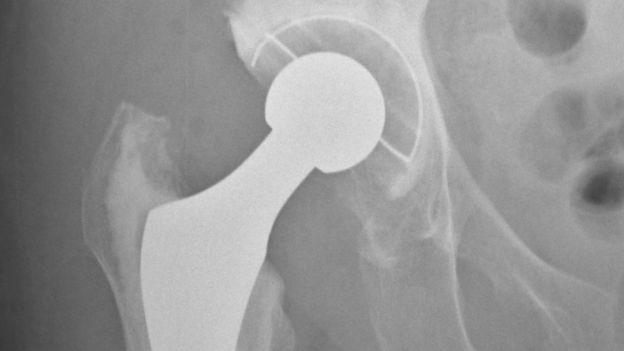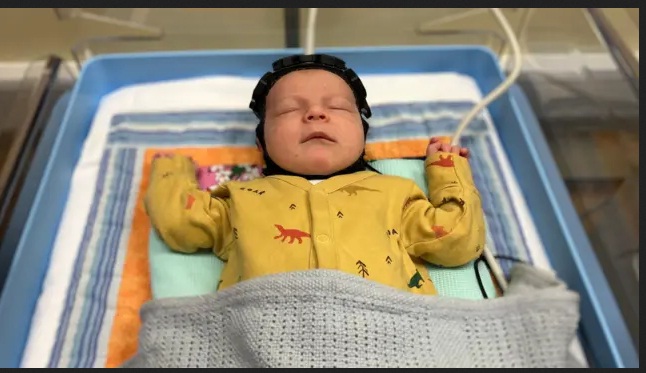
จากการศึกษา พบว่า ส่วนใหญ่ข้อต่อเทียมจะใช้งานได้นาน โดยการผ่าตัดข้อเข่า 8 ใน 10 ราย และการผ่าตัดข้อสะโพกเทียม 6 จาก 10 ราย มีอายุใช้งานอย่างน้อย 25 ปี คณะผู้วิจัย กล่าวว่า ตัวเลขนี้เป็นระยะเวลาที่ยาวนานกว่าที่นักวิจัยคิด และการค้นพบจะช่วยผู้ป่วยและศัลยแพทย์ในการตัดสินใจว่าจะดำเนินการผ่าตัดเมื่อไร
การผ่าตัดข้อสะโพกและข้อเข่าเทียมมีความมุ่งหมายที่จะช่วยบรรเทาอาการเจ็บปวดและภาวะทุพพลภาพในระยะยาว และเพื่อที่จะศึกษาอายุการใช้งานที่เป็นไปได้ของการผ่าตัดข้อสะโพกเทียมทั้งหมด (Total Hip Replacements: THRs) และข้อเข่าเทียมทั้งหมด (Total Knee Replacements: TKRs) คณะผู้วิจัยที่ University of Bristol ได้ตรวจสอบข้อมูลจากกลุ่มผู้ป่วยและจากรายงานทะเบียนระดับชาติ
จนถึงวันนี้ เรายังมีข้อมูลน้อยมากเกี่ยวกับความสำเร็จของสะโพกและข้อเข่าเทียม
แต่งานวิจัยใน Lancet ศึกษาการใช้งานหลังการผ่าตัด 25 ปี ครอบคลุมผู้ป่วยมากกว่า 500,000 คน
การผ่าตัดสะโพกและข้อเข่าเทียมเป็นการรักษาที่แพทย์พยายามตอบคำถามผู้ป่วยว่า อุปกรณ์ที่ฝังเข้าไปจะมีอายุการใช้งานนานเท่าไร
ในอังกฤษและเวลส์มีการผ่าตัดเกือบ 200,000 คน ในปี 2017 โดยส่วนใหญ่ผ่าตัดกับผู้ป่วยอายุระหว่าง 60 ถึง 80 ปี
Dr. Jonathan Evans ศัลยแพทย์ออร์โธปิดิกส์ ผู้นำการเขียนรายงานครั้งนี้และเมธีวิจัยที่ Bristol Medical School กล่าวว่า “อย่างมากที่สุด สำนักงานบริการสุขภาพแห่งชาติ (สหราชอาณาจักร) บอกได้แค่การผ่าตัดสะโพกและข้อเข่าเทียมนั้นออกแบบให้ใช้งานได้นาน แทนที่จะอ้างอิงหลักฐานที่ปรากฏจริงจากประสบการณ์ของผู้ป่วยหลาย ๆ รายที่ผ่านการผ่าตัดมากแล้ว”
“หากมีการปรับปรุงเทคโนโลยีและเทคนิคในเวลา 25 ปีที่ผ่านมา เราคาดว่า การผ่าตัดสะโพกหรือข้อเข่าเทียมที่ทำในวันนี้อาจใช้งานได้นานยิ่งขึ้น”

*Wendy Fryer รับการผ่าตัดข้อสะโพกเทียมเมื่อ 17 ปีที่แล้ว
Wendy Fryer อายุ 80 ปี รับการผ่าตัดเปลี่ยนข้อสะโพกเมื่อ 17 ปีที่แล้ว และข้อเทียมได้เปลี่ยนชีวิตของเธอไปโดยสมบูรณ์แบบ เธอบอกว่า ก่อนหน้านี้เธอทรมานมากและลำบากมาก ต้องหยุดถีบจักรยานไปทำงาน แต่หลังจากวันผ่าตัด อาการเจ็บปวดหายไป เธอยังคงเล่นเทเบิลเทนนิสและแบดมินตันอยู่เป็นประจำ มีความสุขกับการถีบจักรยานและการเดิน
การผ่าตัดข้อสะโพกและข้อเข่าเทียมใช้งานได้นานเท่าไร
การผ่าตัดข้อสะโพกเทียม: ร้อยละ 89 ใช้งานได้ 15 ปี ร้อยละ 70 ใช้งานได้ 20 ปี ร้อยละ 58 ใช้งานได้ 25 ปี
การผ่าตัดข้อเข่าเทียมทั้งหมด: ร้อยละ 93 ใช้งานได้ 15 ปี ร้อยละ 90 ใช้งานได้ 20 ปี ร้อยละ 82 ใช้งานได้ 25 ปี
การผ่าตัดข้อเข่าเทียมบางส่วน: ร้อยละ 77 ใช้งานได้ 15 ปี ร้อยละ 72 ใช้งานได้ 20 ปี ร้อยละ 70 ใช้งานได้ 25 ปี
คณะผู้วิจัยเขียนใน Lancet ว่า ได้ศึกษาดูรายงานจากทะเบียนการผ่าตัดข้อเทียมใน 6 ประเทศ ซึ่งมีข้อมูลอย่างน้อย 15 ปี ได้แก่ ออสเตรเลีย ฟินแลนด์ เดนมาร์ก นิวซีแลนด์ นอร์เวย์ และสวีเดน
นักวิจัยไม่ได้ศึกษาข้อมูลจากสหราชอาณาจักร เพราะบันทึกของผู้ป่วยไม่ได้ย้อนกลับไปไกลพอ แต่คณะทำงานวิจัย กล่าวว่า การค้นพบนี้สะท้อนผลจากการศึกษาผู้ป่วยในสหราชอาณาจักรซึ่งเป็นการศึกษาที่เล็กกว่า
การศึกษา กล่าวว่า เมื่อการผ่าตัดข้อสะโพกและข้อเข่าเทียมล้มเหลว มักมีสาเหตุจากการติดเชื้อ การฉีกขาด และที่เกิดได้น้อยมาก คือ การแตกหัก นั่นหมายความว่า ผู้ป่วยจะต้องรับการผ่าตัดแก้ไข ซึ่งมีโอกาสล้มเหลวได้มากขึ้น
John Skinner จาก British Orthopaedic Association และเป็นศัลยแพทย์ที่ปรึกษาออร์โธปิดิกส์ กล่าวว่า การใช้อุปกรณ์ฝังในร่างกายโดยมีอัตรารอดชีวิตที่ดีขึ้น หมายความว่าการผ่าตัดซ้ำในอนาคตจะลดน้อยลง
“บรรดาศัลยแพทย์ออร์โธปิดิกส์กำลังทำงานเพื่อให้การผ่าตัดข้อสะโพกเทียมใช้งานได้นาน เนื่องจากประชากรมีอายุและมีชีวิตยืนยาวมากขึ้น”
เขาบอกว่า ร้อยละ 95 ของการผ่าตัดข้อสะโพกเทียมจะใช้งานได้อย่างน้อย 10 ปี และข้อแนะนำของสำนักงานบริการสุขภาพแห่งชาติสหราชอาณาจักร กล่าวว่า ข้อสะโพกเทียมใช้งานได้อย่างน้อย 15 ปี
“เรามีความมั่นใจมากต่อการผ่าตัดข้อสะโพกเทียม ซึ่งเราสามารถผ่าตัดให้กับผู้ป่วยที่อายุน้อยกว่าเพื่อบรรเทาอาการเจ็บปวดและช่วยให้ผู้ป่วยมีความคล่องตัวอยู่เสมอ”

March 7, 2019
How Long Do Hip and Knee Replacements Last?
Bruce Soloway, MD reviewing Evans JT et al. Lancet 2019 Feb 16 Evans JT et al. Lancet 2019 Feb 16 Sodhi N and Mont MA. Lancet 2019 Feb 16
In most cases, prosthetic joints last at least 25 years.
Hip and knee replacements are intended to provide long-term relief from pain and disability, but given enough time, prosthetic joints inevitably will fail, and patients will need revisions. To determine the probable longevity of total hip replacements (THRs) and total knee replacements (TKRs), researchers examined data from case series and from national registry reports.
The authors found that reports of case series generally were of low quality and were susceptible to selection and publication bias; estimates derived from national registry data, specifically from Australia and Finland, were more accurate. According to 92 THR registry reports (about 215,000 procedures), 89%, 70%, and 58% of THRs lasted 15, 20, and 25 years, respectively. According to 47 TKR registry reports (about 300,000 procedures), 93%, 90%, and 82% of TKRs lasted 15, 20, and 25 years, respectively.
ผู้เขียนรายงานการศึกษา พบว่า โดยทั่วไปรายงานกลุ่มผู้ป่วย (case series) มีคุณภาพต่ำและแปรผันตาม การเลือกและความเอนเอียงในการเผยแพร่ข้อมูล ค่าประมาณที่ได้จากข้อมูลทะเบียนระดับชาติ โดยเฉพาะอย่างยิ่งจากประเทศออสเตรเลียและฟินแลนด์มีความแม่นยำมากกว่า ตามรายงานทะเบียนของกรณี THR 92 ชิ้น (การผ่าตัดประมาณ 215,000 ครั้ง) ร้อยละ 89, ร้อยละ 70 และร้อยละ 58 ของ THR มีอายุใช้งาน 15, 20 และ 25 ปี ตามลำดับ ตามรายงานทะเบียนของ TKR 47 ชิ้น (การผ่าตัดประมาณ 300,000 ครั้ง) ร้อยละ 93, ร้อยละ 90 และร้อยละ 82 ของ TKR มีอายุใช้งาน 15, 20 และ 25 ปี ตามลำดับ
COMMENT
All-cause revision is not a completely satisfactory endpoint, as it is sensitive to patient and physician preferences and only indirectly reflects prothesis stability and quality of achieved pain relief. This study provides data for physicians discussing risks and benefits of joint replacement with patients. Increasingly, patients who receive THRs and TKRs might outlive their prostheses.
Most hip and knee replacements 'last longer than thought'
By Philippa RoxbyHealth reporter, BBC News
15 February 2019
Eight out of 10 knee replacements and six out of 10 hip replacements last as long as 25 years, says a large study from the University of Bristol.
This is much longer than believed, the researchers said, and the findings will help patients and surgeons decide when to carry out surgery.
To date, there has been little data on the success of new hips and knees.
But this Lancet research looked at 25 years' worth of operations, involving more than 500,000 people.
Hip and knee replacements are two of the most common forms of surgery in the NHS, but doctors often struggle to answer questions from patients on how long the implants will last.
'May last even longer'
Nearly 200,000 of the operations were performed in 2017 in England and Wales, with most carried out on people between 60 and 80 years old.
Dr Jonathan Evans, orthopaedic registrar, lead study author and research fellow at Bristol Medical School, said: "At best, the NHS has only been able to say how long replacements are designed to last, rather than referring to actual evidence from multiple patients' experiences of joint replacement surgery.
"Given the improvement in technology and techniques in the last 25 years, we expect that hip or knee replacements put in today may last even longer."
As the ageing population grows, and life expectancy rises, this becomes even more important, Dr Evans added.
Image copyrightJOANNE FRYERImage caption Wendy had a hip replacement 17 years ago
Wendy Fryer, 80, had a hip replacement 17 years ago and it has completely changed her life.
"I was in agony beforehand, It was horrendous," she said.
"I used to cycle to work but had to stop. But the very next day after the operation, it was like magic, the pain had gone."
She still plays table tennis and badminton regularly, and also enjoys cycling and walking.
"The worst thing you can do is become a couch potato," Wendy says.
How long do they last?
Hip replacements: 89% lasted 15 years, 70% lasted 20 years, 58% lasted 25 years
Total knee replacements: 93% lasted 15 years, 90% lasted 20 years, 82% lasted 25 years
Partial knee replacements: 77% lasted 15 years, 72% lasted 20 years, 70% lasted 25 years
The researchers, writing in the Lancet, looked at reports from joint replacement registries in six countries which held at least 15 years of data - Australia, Finland, Denmark, New Zealand, Norway and Sweden.
They did not look at data from the UK, because its record of patients does not go back far enough, but the research team said their findings mirrored results from smaller studies of UK patients.
According to the study, when hip and knee replacements do fail it tends to be because of infection, wear and tear and, more rarely, because they have broken.
This means patients require revision surgery which is more likely to fail.
'Active patients'
John Skinner, from the British Orthopaedic Association and a consultant orthopaedic surgeon, said using more implants with better survival rates would mean fewer repeat surgeries in the future.
"This is great news. Orthopaedic surgeons are working to provide hip replacements that will last, as our population ages and lives longer."
He said it was known that 95% of hip replacements lasted at least 10 years. NHS advice says they last at least 15 years.
"Initially patients had joint replacements at the very end of their arthritic journey, just before they lost the ability to walk and became wheelchair dependent.
"We are now so confident in hip replacement surgery that we can offer it to younger, more active patients, to relieve their pain and keep them active," Mr Skinner said.
Up to 1 Hour of General Anesthesia Safe for Infants: Study
FRIDAY, Feb. 15, 2019 (HealthDay News) -- Infants who are given general anesthesia for an hour are unlikely to suffer harm, but the safety of longer and repeated exposure remains unknown, a new study says.
Among more than 700 infants in seven countries, the researchers didn't find any measurable neurodevelopmental or behavioral problems up to the age of 5.
"Nearly half the general anesthetics given to infants are used for less than one hour. Therefore, our findings should reassure health professionals and the millions of parents whose young children undergo surgical or diagnostic procedures with anesthetic drugs worldwide every year," said researcher Andrew Davidson, from Murdoch Children's Research Institute in Australia.
The study authors noted that most of the infants in the study group were male and more research is needed to confirm the findings in girls.
In the first three years of life, about one in 10 children in developed countries have surgical, medical and diagnostic procedures where a general anesthetic is used. These procedures can include hernia repair, tonsillectomy, imaging scans and endoscopies.
For years, the safety of giving infants a general anesthetic has been debated. In 2017, the U.S. Food and Drug Administration warned that prolonged or repeated anesthesia in children younger than 3 years of age might affect brain development, the researchers noted.
This caution, however, was based on animal studies, and research in humans has been limited.
For the latest study, researchers randomly assigned 722 infants having operations to either general anesthesia or local anesthesia.
Earlier interim results found no significant difference at age 2 in mental development, regardless of which type of anesthesia was used.
Now, the five-year results show no significant difference in IQ scores between the children given general anesthesia or a local anesthetic. Also, no significant differences were seen in other tests of mental function, the researchers reported.
But development at the age of 5 may be too early to find if some social and emotional skills, which develop later in life, are impaired, the study authors said.
The study was published Feb. 14 in The Lancet.
Commenting on the findings, Dr. James O'Leary, from the University of Toronto, said contributing factors other than general anesthesia, such as type of surgery and sex, should be considered when interpreting these findings.
"Perhaps most importantly, the study results cannot be extrapolated to children who undergo prolonged or repeated exposures to general anesthesia or receive multiple anesthetic drugs for the same surgical procedure," O'Leary said in a journal news release. "Whether anesthesia causes neurological injury in patients under these conditions remains to be established."








